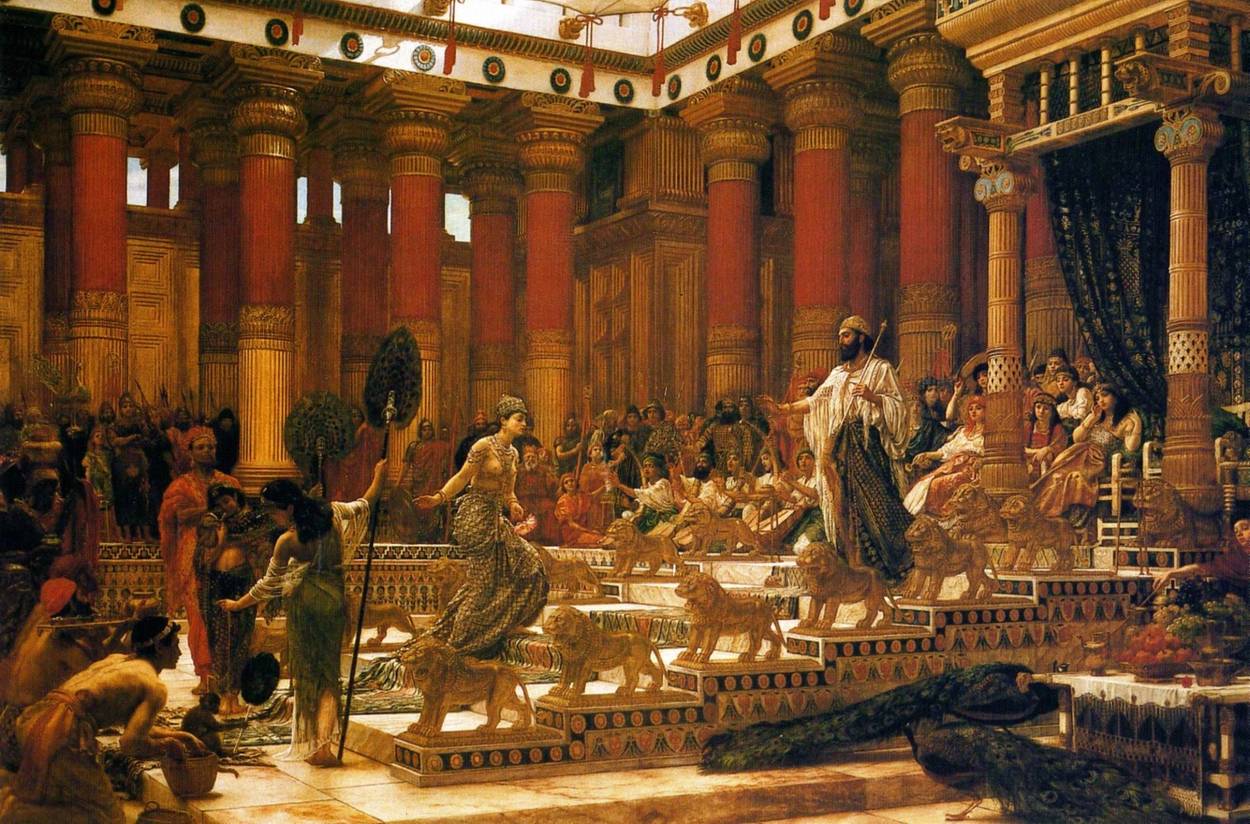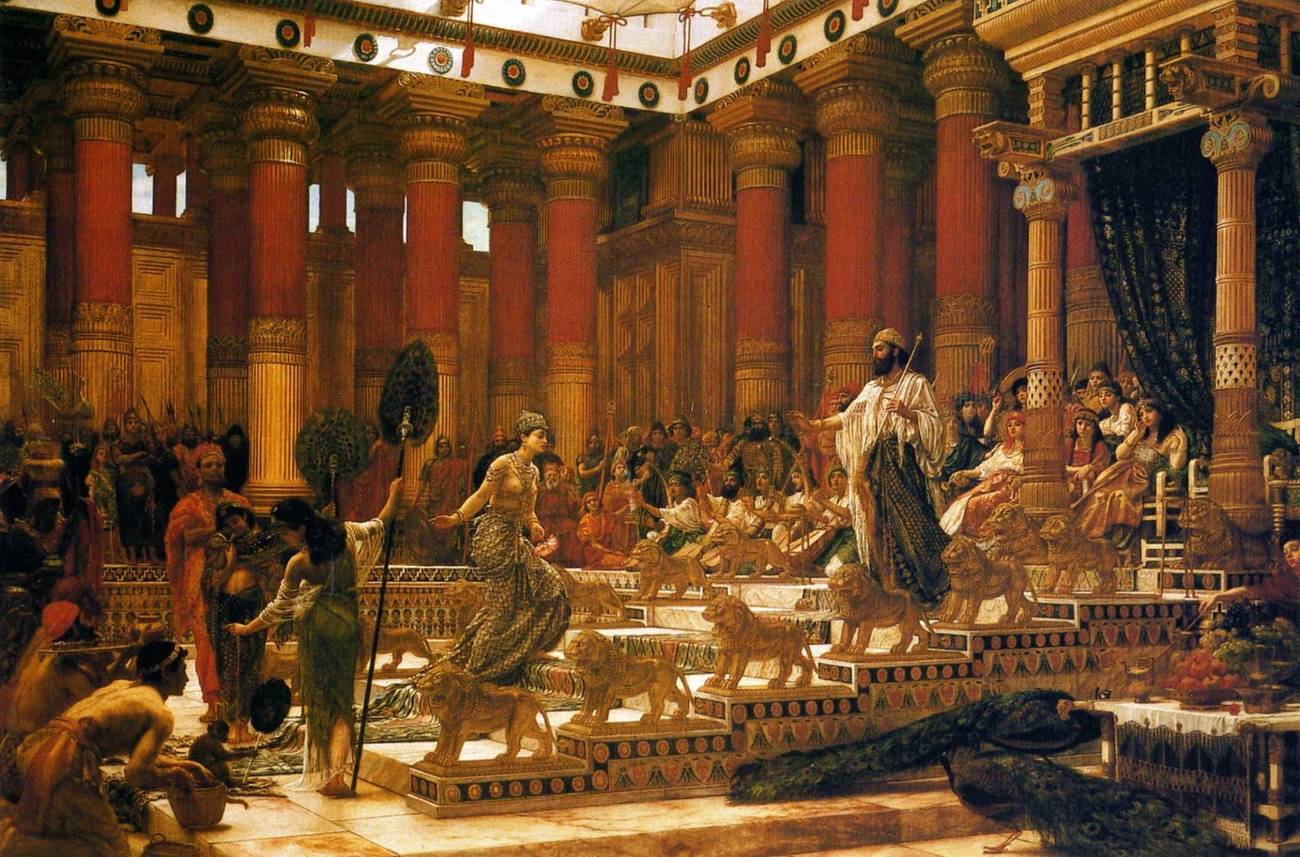Sins of Omission
In the Talmud, a reminder that with great power comes great responsibility




Rabbi Yonatan would have made an excellent defense lawyer for high-profile criminals. In a series of outrageous declarations, this third-century sage whitewashes some of most problematic biblical characters by minimizing their sins: “Rabbi Yonatan said: Whoever says that Reuben sinned is nothing but mistaken.” While Genesis charges Reuben with committing incest with Bilhah, his father’s concubine, the Talmud reinterprets these verses to mean that he simply rearranged his father’s beds so that Jacob would sleep with wife Leah on a night he was due to sleep with Bilhah.
Over the span of two Talmudic folios, this homilist applies the same formula to the sons of Eli, the sons of Samuel, King David, King Solomon, and King Josiah. Collectively, the Bible explicitly charges these prominent men with theft, sexual abuse, bribery, adultery, murder, and idolatry. Yet, Rabbi Yonatan manages to radically reinterpret the verses to reduce their high crimes to minor misdemeanors.
Modern readers who appreciate the brutal honesty of the Bible in exposing the flaws even of national heroes may understandably take offense at Rabbi Yonatan’s cover-up of such blatant abuses of power. In fact, the Talmud itself expresses the subversive view that an earlier sage, Rabbi Yehudah the Prince, already sought to interpret Scripture in favor of David because he traces his own lineage to the Davidic line!
However, analysis of the literary context of this Talmudic discussion reveals a deeper, subtler and more complex educational goal. Rather than downplay their sins, Rabbi Yonatan seeks to hold leaders up to the highest standard of morality and piety. His point is that Scripture describes minor misdeeds of prominent people as if they were atrocities because these figures serve as role models whose small actions have exponential impact. Even worse than minor sins of commission are passive sins of omission—leaders who can use their influence to prevent transgression and suffering of others but neglects to do so. Such sins of omission form the theme running throughout this Talmudic discussion, which begins with this thesis statement:
Anyone in a position to protest the sinful conduct of the members of his household and did not protest, he is held responsible for the sins of the members of his household. If for the people of his town, he is held responsible for the people of his town. If for the whole world, he is responsible for the whole world.
The rabbis held the exilarch—the highest political authority of Babylonian Jewry—responsible for the entire Jewish community. For biblical times, accountability lay on the heads of the priests and elders. This Talmudic section dramatizes the point in an extensive reworking of Ezekiel 9, a harrowing prophecy about six angelic warriors and a seventh scribe. In the biblical version, God instructs the scribe to mark the downtrodden and suffering victims with an “x” on their foreheads as protection from the six warriors who will put the rest of the population of Jerusalem to the sword. The destruction begins at the Temple, the headquarters of the evil elders leading the nation in idolatry and immorality.
The Talmud radically recasts this story by having the scribe mark evil people with blood and the righteous with ink. A new character called the Attribute of Justice, God’s attorney general of sorts, objects to saving the righteous elders:
The Attribute of Justice said to God: Master of the Universe, it was in the hands of the righteous to protest the conduct of the wicked, and they did not protest.
He said to her: It is revealed and known before Me that even had they protested the conduct of the wicked, they would not have accepted the reprimand from them.
The Attribute of Justice said before Him: Master of the Universe, if it is revealed before You, is it revealed to them?
With that, God changed His mind and began the punishment with the righteous elders who were themselves meticulous with every commandment but who did not influence their co-religionists to improve. The original biblical elders were the ringleaders of idolatry, but are transformed in the Talmudic retelling into personally pious, albeit self-absorbed, sages. The rabbis thereby teach that their sin of omission deserved the same punishment as those who transgressed directly. The homilist here transports the biblical prophecy to his own generation and warns his own rabbinic colleagues of their responsibilities to their wider communities.
In this light, we can better appreciate Rabbi Yonatan’s declaration, “Whoever says that Solomon sinned is nothing but mistaken.” Yes, the Bible narrates that King Solomon “built an altar for Kemosh the abomination of Moab … and he did the same for all his foreign wives who offered and sacrificed to their gods.” Instead, the Talmud explains that Solomon’s wives and citizens worshipped idolatry while the king himself remained reverent to God. Nevertheless, his tolerance for the offences in his household and country make him as guilty as if he directly transgressed.
Similarly, the Talmud reduces King David’s adultery and murder to a mere passive listening to slanderous gossip. Yet, they also make the extraordinary claim that this single peccadillo eventually caused the division of the monarchy and the Babylonian exile. In Rabbi Yonatan’s reading, none of these biblical dignitaries ever sinned actively, but they are each held responsible for disastrous consequences of their inactions.
The Talmudic rabbis were decent and pious sages, fathers and community leaders for whom the incest and idolatry of biblical stories must have sounded alien to their contemporary struggles and experiences. They therefore downsized the crimes of ancient kings to offenses applicable to the exilarch, just as they reduced the sins of the priests down to their own lapses of judgment. Through this rhetorical move, the rabbis emphasize that their own actions and decisions as leaders of their generation can still lead to consequences of biblical proportions.
This Talmudic lesson resonates as we contemplate modern sins of omission. As recently reported, Pope Pius XII knew of the mass murder of Jews in Poland and Ukraine as early as 1942 and failed to condemn the Nazis. The Talmud would certainly hold him complicit in their murder. As the world becomes ever more complex and interconnected, the seeds of the next disaster may lie in the simple neglect of leaders to find warning signs and address problems not yet on the public agenda. The real champions of the future will not be warriors fighting massive evil forces but quiet heroes whose foresight staves off threats before they emerge.
The Talmud addresses itself, however, not only to kings and exilarchs, but also to local community activists and any member of a household. Even those of us noncelebrities who lack global influence, still have the power to motivate and act as role models for our families, neighbors, and social networks. Sins of omission are the most difficult to detect, but can also be the most impactful when rectified. After all, those who can inspire others and do so, are credited for the achievements of their households, their towns, and the world.
Rabbi Dr. Richard Hidary is a professor of Judaic Studies at Yeshiva University, a rabbi at Sephardic Synagogue, and a faculty member for the Wexner Heritage Program. He was recently a Starr fellow at Harvard University’s Center for Jewish Studies and a Clal - LEAP fellow at the Katz Center for Advanced Jewish Studies, University of Pennsylvania. He is the author of Dispute for the Sake of Heaven: Legal Pluralism in the Talmud (Brown University Press, 2010) and Rabbis and Classical Rhetoric: Sophistic Education and Oratory in the Talmud and Midrash (Cambridge University Press, 2018). He is currently writing a new translation and commentary on tractate Sanhedrin and recording daf yomi classes (available on YouTube). He also runs the websites teachtorah.org, pizmonim.org, and rabbinics.org.